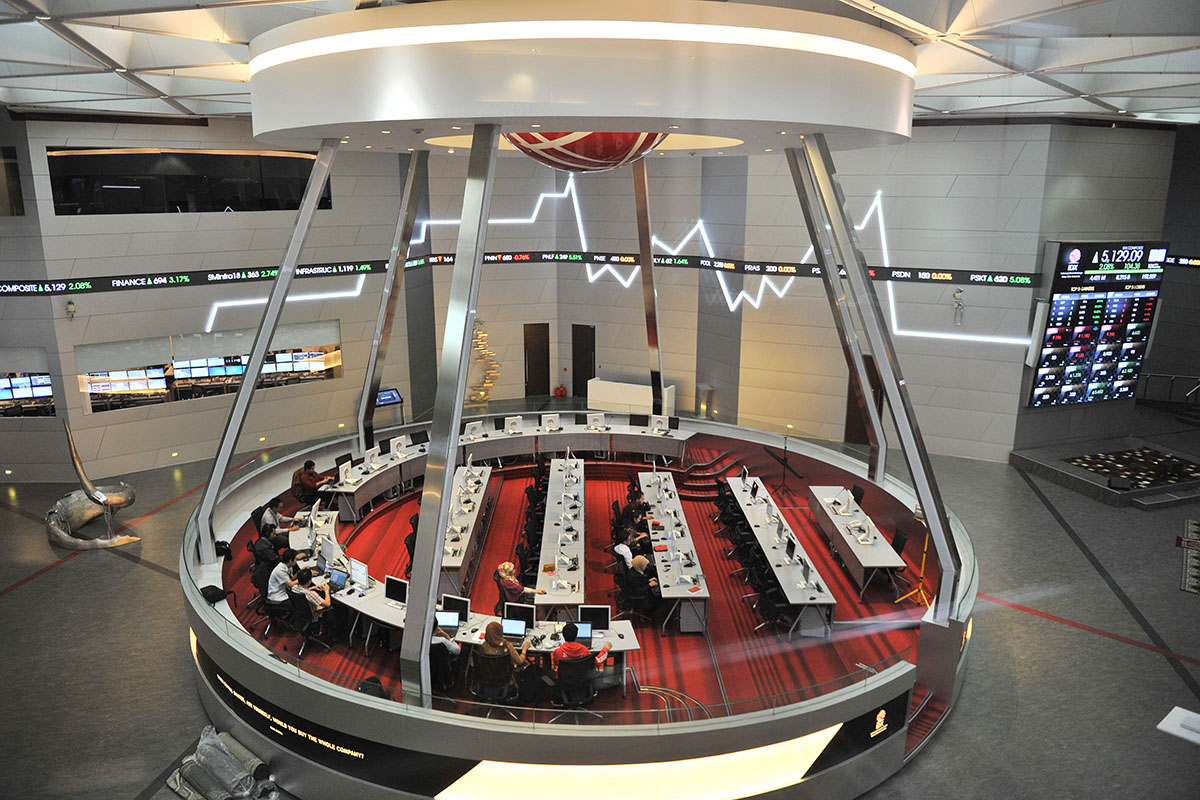Indonesia’s stock exchange is having trouble luring retail investors. Their solution? Target the millennials.
While the participation of individual investors in Indonesia is low compared with other Asian countries, those aged between 21 and 30 account for 26 percent, the biggest share of any age group, according to data from Indonesia Central Securities Deposit. To capitalize on that, the century-old bourse has been holding pop concerts on its trading floor and running photo caption contests in a bid to appeal to younger, would-be market players.
Niken Dewanti and Gita Astika, both university students, were among hundreds of mostly formally-dressed young men and women swaying to the tunes of local musician Glenn Fredly at last month’s installment of those shows. On the sidelines, they sought out tips on maximizing equity returns from booths run by at least one brokerage and the stock exchange.
“If I put my savings in the bank, it could be easily used up and the return is not great,” Dewanti, 20, said. “Starting next year, I want to switch a part of my savings at the bank to stocks.”
Individual investors – the stalwarts underpinning equity markets like China’s – accounted for just 41 percent of total turnover on the Indonesian stock exchange last year, compared with more than 80 percent for Taiwan and 59 percent in nearby Thailand. A retail investor base provides an element of solidity for an equity market, acting as a buffer when offshore investors reduce their holdings, as is happening in Indonesia right now.
“The pressure on regulators to significantly increase the number of retail investors is increasing as the market is dominated by pension funds and other institutional investors,” said John Teja, a director at PT Ciptadana Sekuritas Asia in Jakarta. “Higher retail participation could also give more stability to the market.”
Edging Up
Individual investor participation has been increasing, but not by much.
The portion of domestic equities owned by local retail investors rose to 8.2 percent as of September, from 5.9 percent at the end of 2014, according to data from Indonesia’s Financial Services Authority, known as OJK. The uptick came as foreign ownership of Indonesian shares dropped to 52.2 percent from 64.3 percent during the same period.
Tito Sulistio, president director of the Indonesia Stock Exchange, didn’t immediately provide comment.
While more local investors are adding equities to their asset portfolios, it’s still the large institutional fund managers who have been the force behind Indonesia’s record stock rally this year. Still, at 13 percent the Jakarta Stock Exchange Composite Index’s climb pales in comparison to other Asian benchmarks, with Singapore’s Straits Times Index up 19 percent and Vietnam’s VN Index rising 45 percent, the best performer in the region.
Foreign investors have actually been net sellers this year with the largest annual outflow on record, as Indonesia ranks among the priciest stock markets in Asia. The Jakarta gauge trades at 16 times its projected earnings, the third-most expensive stock market after India and the Philippines.
“Millennials have bigger risk tolerance compared to other groups and they are more knowledgeable as well compared to their predecessors,” Norico Gaman, head of research at PT BNI Sekuritas, said by phone. “By targeting them, Indonesian equities market can grow more sustainably in the longer term and the Indonesian economy can enjoy a larger pool of funding from the domestic market,” he added. – Bloomberg
Recommended stories:
